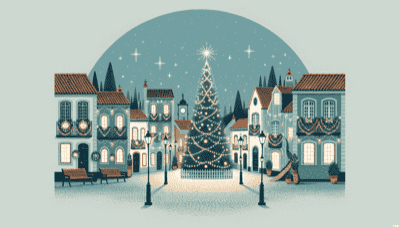We're here to help you keep count of the days to or since a date. Just click the button below and enter your chosen date to get started. Also choose the suggested days or search for a special day above #countingthedays

Christmas Eve, known as "Consoada" in Portugal, has deep roots in the country's religious and cultural traditions. It marks the anticipation of the birth of Jesus Christ and is a time for family gatherings. The name "Consoada" comes from the Latin word "consolare," which means to comfort or to solace, reflecting the idea of comforting oneself with food after a period of fasting.
On this day, Portuguese families come together to celebrate. It's a family-centric event with several traditions:
Missas do Galo (Midnight Mass): Many Portuguese attend the traditional Midnight Mass to mark the birth of Jesus.
Ceia de Natal (Christmas Dinner): The Christmas Eve meal is an important tradition. Families enjoy dishes like "bacalhau" (codfish), often boiled with potatoes and cabbage, though recipes can vary by region. Octopus and other fish may also be served.
Presépio (Nativity Scene): Setting up nativity scenes depicting the birth of Jesus is a common practice in many homes.
Gift Exchange: While some gifts might be exchanged on Christmas Eve, it's more common to exchange presents after Midnight Mass or on Christmas Day.
Food plays a significant role in Portuguese Christmas Eve celebrations:
Desserts: A variety of traditional sweets are enjoyed including "Bolo Rei" (King Cake), "filhoses," and "rabanadas."
Consoda Meal: The meal itself is meat-free due to Catholic tradition, reserving fish as the main dish until Christmas Day when meats can be introduced.
Christmas Eve in Portugal is characterized by its warmth, with families spending time together at home, enjoying traditional food and attending church services as they usher in the festive spirit of Christmas Day.